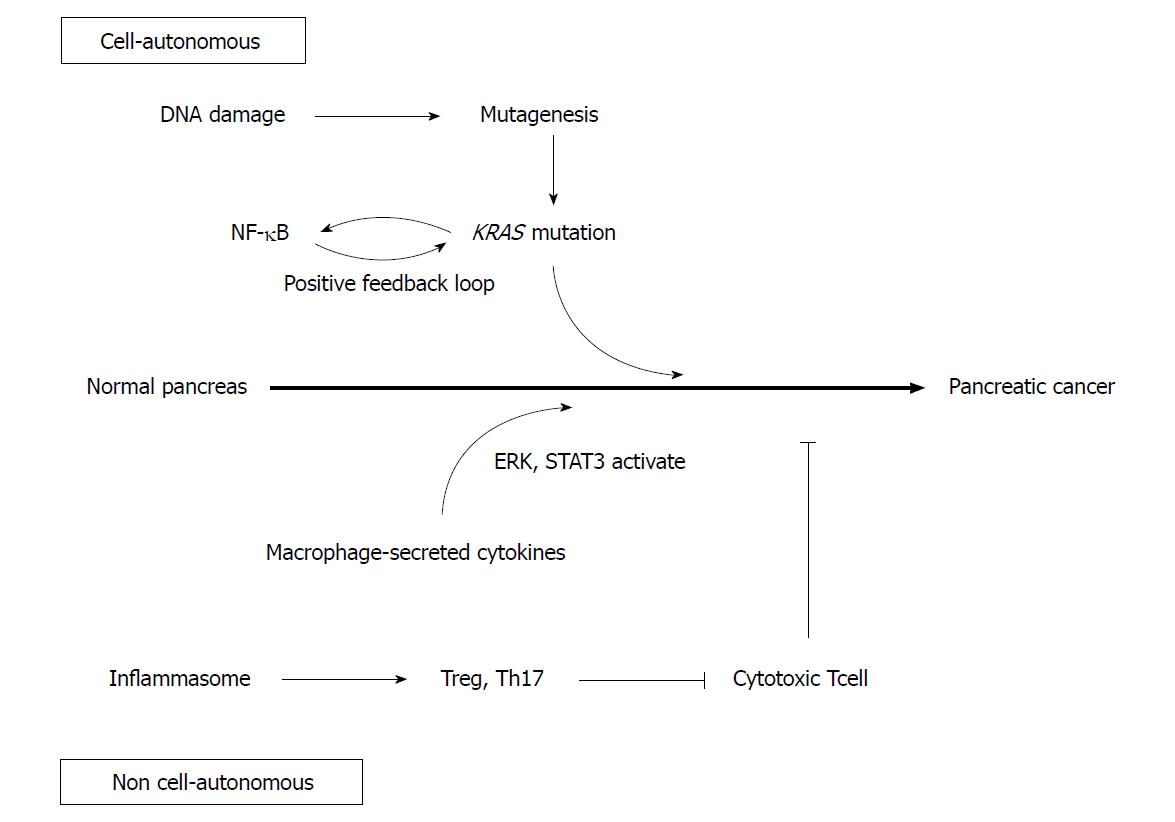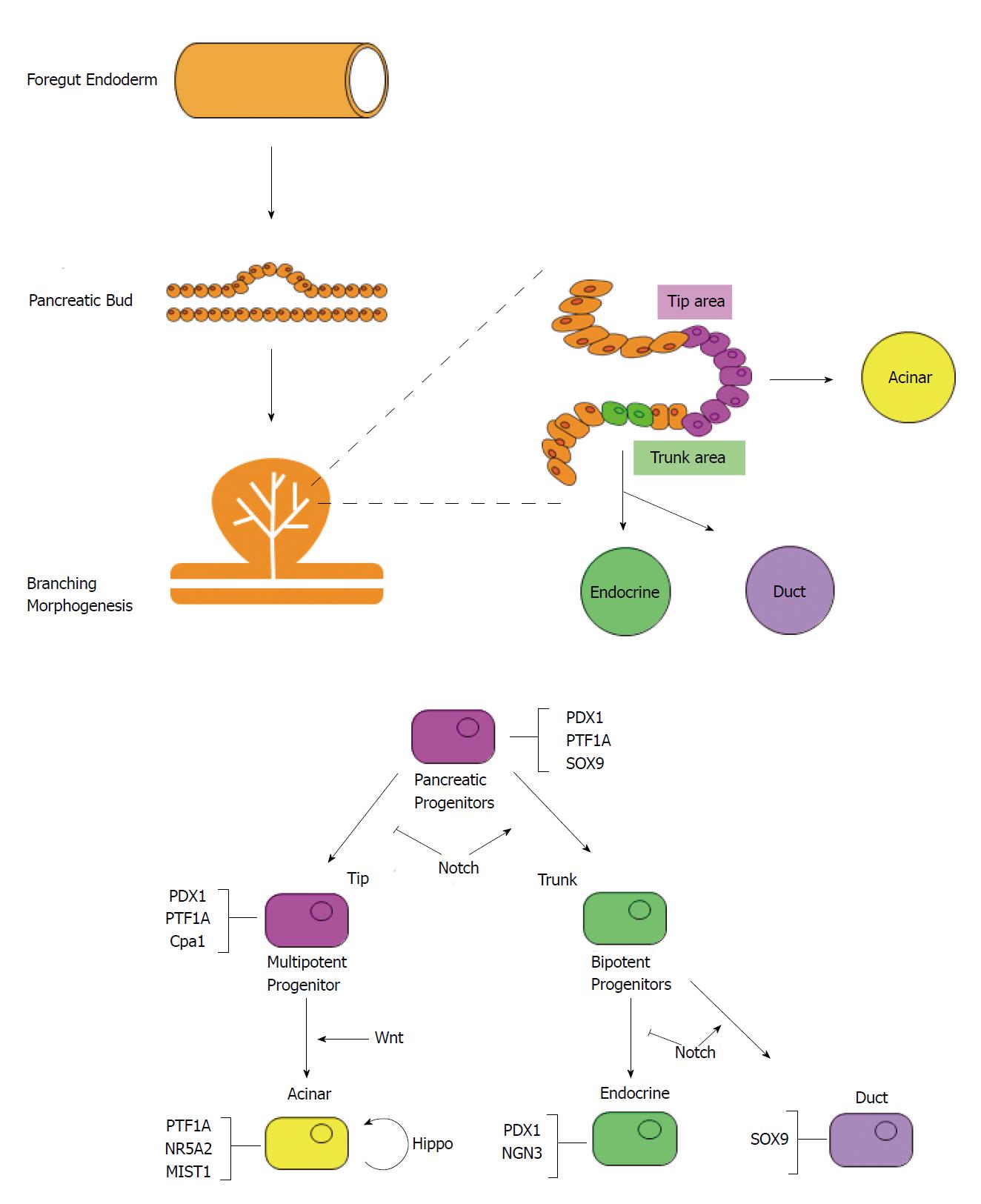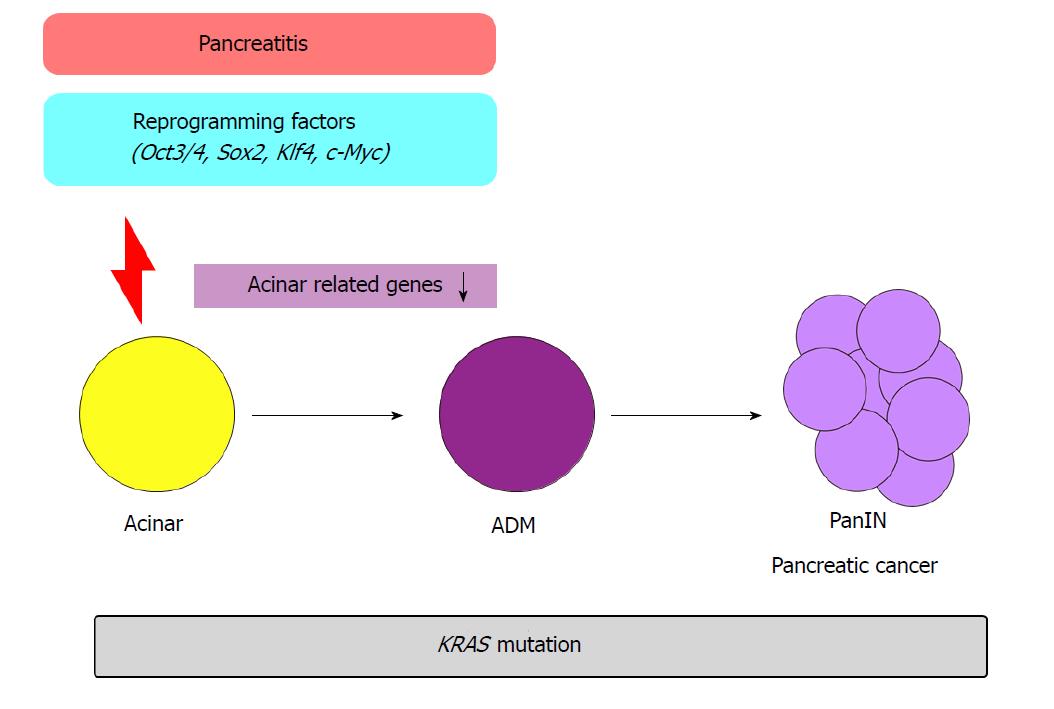Copyright
©The Author(s) 2018.
World J Clin Cases. Dec 6, 2018; 6(15): 882-891
Published online Dec 6, 2018. doi: 10.12998/wjcc.v6.i15.882
Published online Dec 6, 2018. doi: 10.12998/wjcc.v6.i15.882
Figure 1 Inflammation induces carcinogenesis both cell-autonomously and non-cell-autonomously.
DNA damage caused by inflammation contributes to mutagenesis. Nuclear factor κB and KRAS activate each other and sustained KRAS activity promotes carcinogenesis. Macrophage-secreted cytokines activate the ERK and STAT3 signaling pathways in epithelial cells. Inflammasomes inactivate cytotoxic T cells via the activation of Th17 and regulatory T cells. NF-κB: Nuclear factor κB.
Figure 2 Pancreatic organogenesis and cell differentiation.
The pancreatic bud arises from the endoderm foregut. During early branching morphogenesis, the branch tip is composed of multipotent progenitor cells that change into acinar cells. The trunk region is composed of bipotential progenitor cells that can differentiate into either duct or endocrine cells. As differentiation continues, the expression of PTF1A, NR5A2, and MIST1 is restricted in acinar cells.
Figure 3 Pancreatic cell de-differentiation, inflammation, and carcinogenesis.
Carcinogenesis is promoted by reprogramming factors (Oct3/4, Sox2, Klf4, and c-Myc). When the reprogramming factors are activated, acinar cell-related genes are suppressed. Pancreatitis also shows such transcriptional changes.
- Citation: Seimiya T, Otsuka M, Iwata T, Tanaka E, Suzuki T, Sekiba K, Yamagami M, Ishibashi R, Koike K. Inflammation and de-differentiation in pancreatic carcinogenesis. World J Clin Cases 2018; 6(15): 882-891
- URL: https://www.wjgnet.com/2307-8960/full/v6/i15/882.htm
- DOI: https://dx.doi.org/10.12998/wjcc.v6.i15.882











